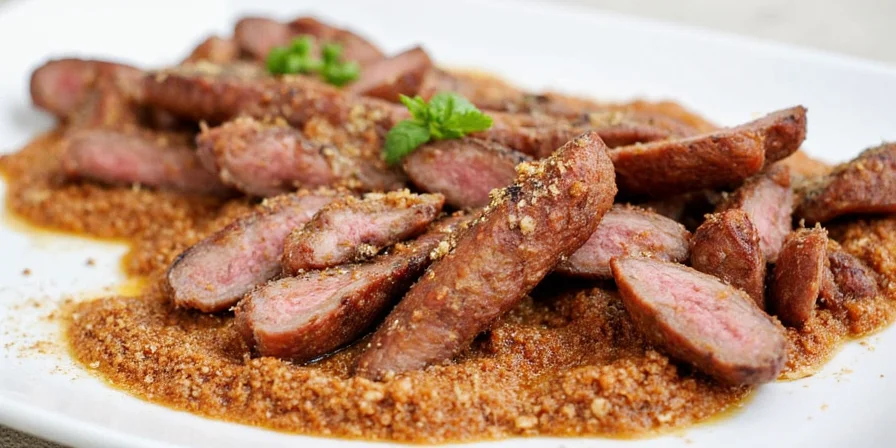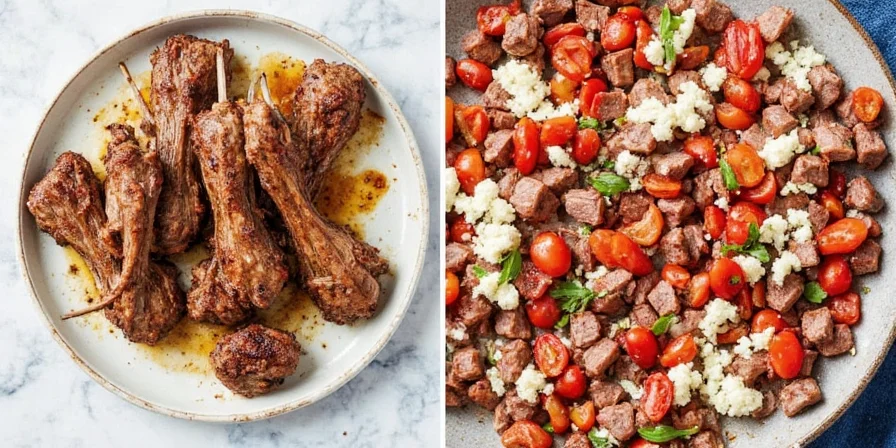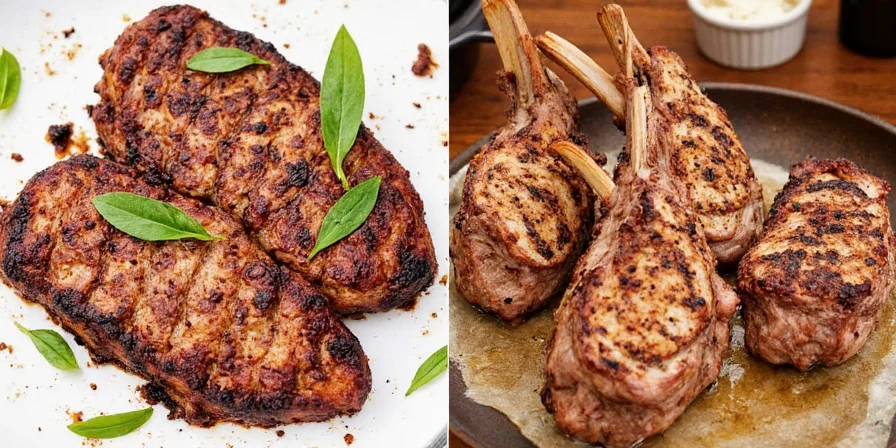From Souvlaki to Lamb Chops: Mastering Greek Meat Seasoning Like a Pro
Are you tired of bland grilled meats? Want to give your taste buds a vacation to the Mediterranean sun without leaving your kitchen? Welcome to the world of Greek meat seasoning, where bold herbs, zesty lemon, and aromatic spices transform every bite into a celebration. Whether you're a seasoned chef or a weekend grill warrior, this guide will walk you through everything you need to know — and more — about one of the most iconic spice blends in Global Spice Traditions.
Table of Contents
- What is Greek Meat Seasoning?
- The Holy Grail: Key Ingredients of Greek Meat Seasoning
- Homemade vs Store-Bought: Which One’s Worth Your Time?
- Top 5 Hacks for Using Greek Meat Seasoning Like a Local
- Meat Magic: Pairing Greek Seasoning with Different Cuts
- Visual Comparison Table: Spice Breakdown
- Quick Fire FAQs: Everything Else You Need to Know
- Conclusion
What is Greek Meat Seasoning?
Let’s cut to the chase: Greek meat seasoning isn’t just one spice — it’s a blend of flavors that screams summer, sunshine, and souvlaki stands on Santorini. It's less about heat and more about balance — earthy, tangy, herby, and occasionally sweet. Think of it as the culinary version of a Greek island breeze with a little bit of attitude.

The Holy Grail: Key Ingredients of Greek Meat Seasoning
To master this flavor profile, you must understand its foundation. Here are the essential players:
- Oregano: The heart and soul of Greek seasoning. Use dried for best results; fresh can be too mild.
- Garlic Powder: Adds depth and umami. Avoid granulated unless you like chunky surprises.
- Sea Salt: Enhances all other flavors. Opt for coarse salt if you want texture.
- Black Pepper: A must for warmth and slight kick.
- Paprika (Optional): For color and subtle sweetness.
- Dried Lemon Zest: Gives that bright, sunny vibe without the mess of fresh juice.
- Marjoram or Thyme: Adds complexity and a touch of floral magic.

Homemade vs Store-Bought: Which One’s Worth Your Time?
You might ask, “Can’t I just buy a pre-made blend?” Sure, but here’s why making your own is worth the extra 3 minutes:
| Aspect | Homemade | Store-Bought |
|---|---|---|
| Flavor Control | Fully customizable | Limited flexibility |
| Freshness | Peak freshness at use | Average shelf life |
| Cost | Cheap if you already have spices | Can get pricey |
| Additives | No preservatives or fillers | May contain anti-caking agents |
Tip: Make a big batch and store it in an airtight container — it lasts up to 6 months!

Top 5 Hacks for Using Greek Meat Seasoning Like a Local
Want to impress even the pickiest Greek grandma? Try these pro-level tricks:
- Rub It In: Don’t just sprinkle — massage the seasoning into the meat. This helps the spices penetrate and stick during grilling.
- Pair with Lemon Juice: A squeeze of fresh lemon brings out the brightness and ties everything together.
- Rest Before Cooking: Let seasoned meat sit for 20–30 minutes before cooking to let flavors meld.
- Add Olive Oil: Helps carry the spices deeper into the meat and creates a nice sear.
- Use It Beyond Meat: Sprinkle over roasted vegetables, fries, or even popcorn for a Greek twist.

Meat Magic: Pairing Greek Seasoning with Different Cuts
Greek seasoning works well with a variety of meats, but not all cuts are created equal. Here’s a cheat sheet:
| Meat Type | Best Cut | Prep Tip |
|---|---|---|
| Chicken | Bone-in thighs or breasts | Rub under skin for maximum flavor infusion |
| Lamb | Shoulder chops or leg | Marinate overnight for tender perfection |
| Pork | Loin or shoulder | Combine with rosemary for a rustic flavor boost |
| Beef | Sirloin or flat iron | Keep seasoning light to avoid overpowering beefiness |
| Seafood | Shrimp or white fish | Use sparingly; mix with breadcrumbs for crusty finish |

Visual Comparison Table: Spice Breakdown
Ever wonder how Greek seasoning compares to other global spice blends? Here’s a quick breakdown:
| Spice Blend | Main Herbs/Spices | Heat Level | Signature Dish |
|---|---|---|---|
| Greek | Oregano, garlic, lemon zest | None | Souvlaki |
| Italian | Basil, oregano, fennel seed | Mild | Grilled Chicken Parmesan |
| Mediterranean | Sumac, cumin, paprika | Mild-Med | Kebabs |
| Lebanese | 7-spice blend (cinnamon, clove, allspice) | Mild | Kibbeh |
| Mexican | Chili powder, cumin, garlic | Med-High | Tacos al Pastor |
Quick Fire FAQs: Everything Else You Need to Know
- Q: Can I make a low-sodium version?
A: Absolutely! Replace half the salt with ground fennel seeds or lemon zest for flavor without sodium overload. - Q: How do I store my homemade Greek seasoning?
A: Keep it in a cool, dark place in an airtight container. Mason jars work great! - Q: What if I don’t like oregano?
A: Swap in marjoram or thyme. You’ll lose some authenticity but gain personal flair. - Q: Is it vegan-friendly?
A: Yep! As long as no animal-derived additives are included, it’s perfect for veggie grilling too. - Q: Can I add chili flakes for heat?
A: Of course! Add red pepper flakes to create a spicy Mediterranean twist.

Conclusion
Mastering Greek meat seasoning isn’t rocket science — it’s more like flavor alchemy. With just a few pantry staples and a bit of love, you can transport your meals straight to the Aegean coast. Whether you’re grilling for friends or feeding the family, this timeless blend from Global Spice Traditions deserves a permanent spot in your spice lineup.
So go ahead — season boldly, cook passionately, and eat like a true Greek. And remember: when in doubt, always add a splash of olive oil and a squeeze of lemon. OPA!











 浙公网安备
33010002000092号
浙公网安备
33010002000092号 浙B2-20120091-4
浙B2-20120091-4